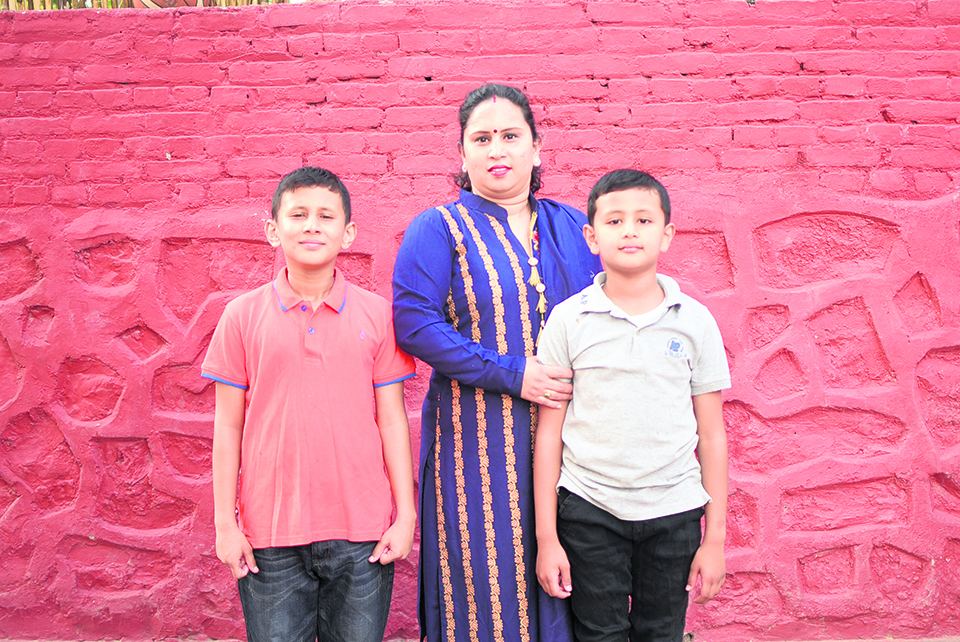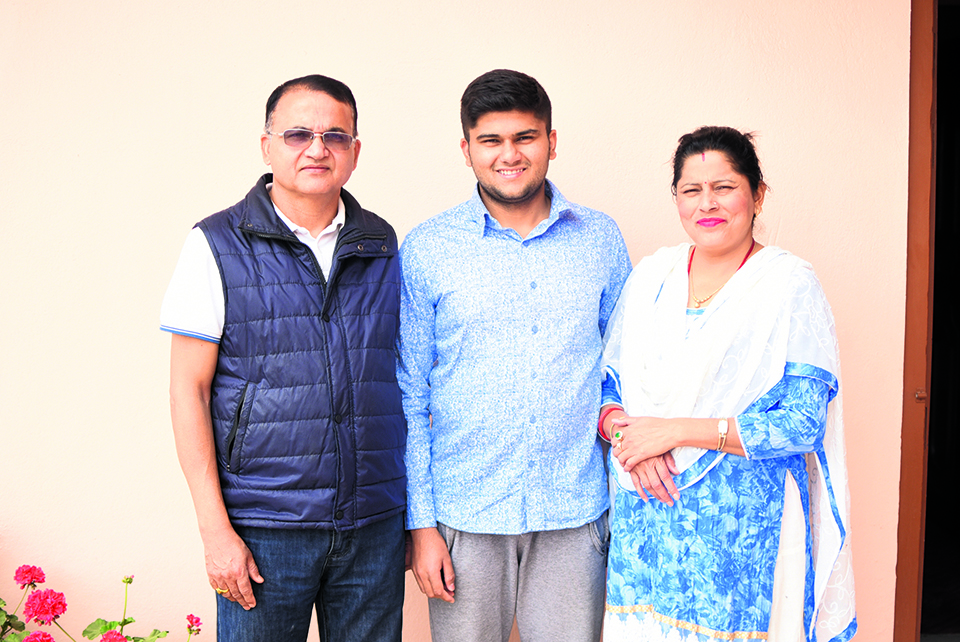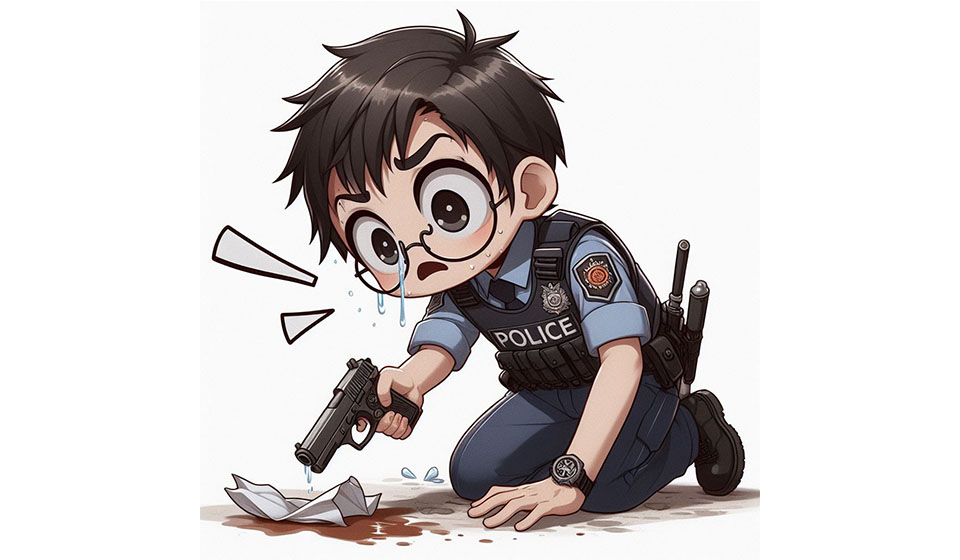
OR

No one likes a nag and no one like being a nag. But where children come into the picture, concern, mostly a lot of it, inevitably turns parents into a nag. There’s no guide to parenting. Everyone does what they believe is best for their child. And it’s no simple feat; that much is true. It’s perhaps the trickiest of skills there is, one that really can’t ever be mastered.
“You go by instinct. No parent will do anything that will harm their child,” says Kiran Khadka, a mother of two boys who is also a part time UCMAS instructor at Ambition Academy. Khadka’s sentiment is a common one, but parenting, most confess, isn’t as simple or clear cut as she makes it sound.
To ensure their children’s lives are smooth, many parents these days do everything for them. From dropping them to a friend’s house to eventually deciding their college majors, parents are involved in every aspect of their children’s lives. This micromanaging, however, can take a toll on young minds, says psychotherapist Umanga Jung Parakram Shah.
Shah believes that parents start out by wanting to help their children but “help” often comes in the form of forced opinions and decisions that make children feel pressured. And when you do everything for your child, s/he will never learn how to be self-reliant either.
Sushil Koirala, a social studies teacher at Reliance Public School at Bibek Chowk in Kapan, Kathmandu, agrees with Shah and says that this kind of mentality where you believe you have to control your children’s lives without their active involvement will have a lot of detrimental effects later on. Madhav Nepal, professor of Nepali literature at Patan Multiple Campus, adds, “Too much pampering and hovering can damage your child’s ability to help themselves and also their sense of self worth.”
A case in point could be Stuti Bhandari’s 14-year-old son who turns to his mother for every little thing. Bhandari confesses that it’s her own doing. She feels because she didn’t let him do anything by himself and made all his decisions for him that he is incapable of being on his own today. “He will ask me if he ‘wants’ to go to a birthday party he has been invited to. If I tell him to decide, he will sulk and say he doesn’t know,” says Bhandari adding that by being overprotective she didn’t let her son develop confidence to be himself. Bhandari also mentions that he won’t go anywhere unless she drops and picks him up.
However, Nita Karki, mother of two prepubescent boys, mentions that she doesn’t meddle in minor things in her children’s lives but when issues scale out her sons’ control that is when she steps in. She recalls an incident when she found out that her elder son (studying in grade seven) was being bullied by another student in the same class. She couldn’t let this pass so she requested the class teacher to transfer her son into another section so that he would be away from the bully.
Psychotherapist Shah believes Karki’s approach to be the best when it comes to parenting. You have to let the child handle things till you are certain s/he can’t, he says. “But often times, parents intervene too early. They want their child’s life to be perfect and, though there is nothing wrong with that, this cushioning won’t prepare them for life,” he explains.
Another issue that comes up when talking about parents’ micromanaging their children’s life is their deciding what career path their child should take to become successful. Koirala shares an example of a student from the SEE batch of last year at his school. The student apparently wanted to take up Environment Science as his optional subject because he was interested in it. But his parents decided that he should study Optional Mathematics instead because that was what would help him pursue conventionally successful career paths like medicine and engineering. He reveals that the student who had been getting straight As in Environment Science only got Cs and Ds in Optional Mathematics.
Koirala fears that children whose parents don’t let them choose their careers will most probably not succeed in the profession they are forced into because their interests and what they are pursuing don’t align. “Parents are rearing their kids to match the society’s false ideals of success. Many don’t even ask their children about their interests,” he adds.
Durna Phyual, account officer at the Department of Roads, has a counter argument for that. He is a father of two sons. He claims that since he has a lot more experience in life than his sons, he is able to foresee what’s best for them. “I’m only helping my children get a better shot at their futures when I tell them what to do,” he argues.
However, Shah mentions that around the time a child reaches 12 or 13 years of age, they start showing immense interest and potential in something or the other, but a lot of parents miss this because their sight is only on the child’s academic success. “If the child feels like they are supported by their parents in the subject of their interest, they can go on to become very successful in the particular field later on.
But if they feel like their parents don’t care and that their parents are only forcing them into doing and learning things they aren’t interested in, they will not only be unhappy in their careers but it will also be a big blow to their self esteem as well,” says Shah.
19-year-old Jenny Sherpa, who recently completed her A Levels from Budhanilkantha School, does freelance modeling, operates an online clothing store, and is actively dabbling in politics through Nepali Congress. She thinks her parents who didn’t hover and make her feel encased did a good thing because she could explore her potential and grow up to become confident. “I’m the person I’m today because my parents let me think for myself,” she says.
An example of bad parenting that Sherpa has seen up close is the case of her best friend whose parents still don’t let her go anywhere because they fear she will develop bad habits. According to Sherpa, her friend’s parents supervise everything she does, including what she wears, and this has made her friend very timid and reserved. Sherpa states that parents should give their children good values and then trust them enough to make the right choices in life.
“Sometimes, parents have to step back and let their children feel like they have some control over their own lives. You have to know where to draw the line between wanting the best for your child and micromanaging their lives for them,” concludes Shah.
anweitiupadhyay@gmail.com


You May Like This

Parents mull goat sacrifice as children keep fainting at school
ROLPA, Feb 20: After more children started falling ill, parents have deployed shamans at their school since the past two... Read More...

U.S. government says it will detain migrant children with parents
WASHINGTON, June 30: The U.S. government said in a court filing on Friday that it has the right to detain... Read More...

Education for children residing with parents inside prison
KHOTANG, April 8: Arrangement for education of children living in District Prison, Khotang with their inmate parents have been made now... Read More...








Just In
- One arrested from Jhapa in possession of 43.15 grams of brown sugar
- EC to tighten security arrangements for by-elections
- Gold price drops by Rs 2,700 per tola
- Seven houses destroyed in fire, property worth Rs 5.4 million gutted
- Police pistol missing after drug operation in Bara, investigation underway
- Truck carrying chemical used in drugs catches fire
- Nepali journalists Sedhai and Kharel awarded second prize at Fetisov Journalism Awards for their exposé on worker exploitation in Qatar World Cup
- Devotees gather at Balaju Park for traditional ritual shower at Baisdhara (Photo Feature)










Leave A Comment